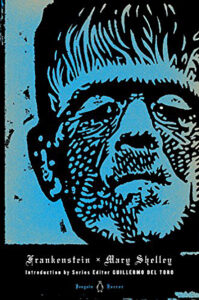By Shelby Stewart
Staff Writer
The Brandon School District is starting the process of updating the English Language Arts, ELA, required readings. Currently, the most modern book  that is part of the curriculum is “Something Wicked This Way Comes” by Ray Bradbury, which was published in 1962.
that is part of the curriculum is “Something Wicked This Way Comes” by Ray Bradbury, which was published in 1962.
“We asked students what they thought about the novels that you’re learning and you’re reading in class as a whole-class novel. Overall, do you like these?” said Gwen Stine, ELA teacher at Brandon High School. “Well the average answer was a 2.9 out of 5, so 50/50. So we asked them what their reasoning is, about 41 percent said they actually like the books they read. We’re missing out on truly engaging about 59 percent of students as readers simply because they don’t like the book. Twenty-two percent said it was boring, 18 percent said they had a hard time understanding it, and 19 percent said they simply don’t relate to the book.”
The first step in updating the readings will be the replacement of one book in the ELA 11 required readings with a choice of five books. The book that will be replaced is “Frankenstein” by Mary Shelley, which was published in 1818, and that replacement will begin in the 2022-2023 school year.
“We want to start very slowly, we want to replace one book, ‘Frankenstein.’ The biggest thing we want to do is kind of incorporate what we learned with the choice reading, and so we want to provide choice in our new novel,” said Stine. “And so our standards would stay the same, we cannot change that, the curriculum stays the same. The focus is still on craft, it’s still on literary analysis. The only thing that changes is the book.”
This past year, the ELA classes have been trying to encourage reading in students by giving them choice of what to read. Each student has to participate in free reading time, but the student can read any book they want, and there is no assessment or pressure about the reading.
“The ELA teachers set a goal this year, to really get students just to simply read more. Reading fiction improves a whole slew of things, things like vocabulary, memory, critical thinking skills and empathy and imagination,” said Stine. “This year we required ELA students to simply read more and participate in free reading time. We wanted to make sure to have a book of choice, kids could read things they got in the library, things they got from home, there was no pressure, no assessment. The whole goal was simply just to read. And the results were amazing.”
Prior to this school year, students rated if they would classify themselves as a reader on a scale of 1-5. Before the year, the average was 2.5, and after the school year and the addition of the free reading time, the average rating was 3.3.
“We gained one whole point just by letting the kids choose their book, not assessing them, and giving them time to read,” she said.
This data led to the decision to giving students a choice in what they read for the required readings. Students will be given a list of six books to choose from. The books will be “The Serpent King” by Jeff Zentner, “The Hate U Give” by Angie Thomas, “All American Boys” by Brendan Kiely and Jason Reynolds, “The Absolutely True Diary of a Pert-Time Indian” by Sherman Alexie, “The Curious Incident of the Dog in the Night-Time” by Mark Haddon, and “Firekeeper’s Daughter” by Angeline Boulley.
The books that were chosen were decided on after the teachers in the English department talked to fellow teachers that they knew, as well as teachers within Oakland Schools. They also read the recommended books to decide on these six.
“We read a lot of books. So for every book that was chosen, there’s one or two behind it that didn’t get chosen. So we read a lot,” she said. “We also made sure that we wanted to focus on teen voices, so books that are relatable. Our goal was really to have books about teens persevering through an adversity.”
The plan is to update other books in the future for other grade levels as well.
“Eventually we’d like to update some of the other novels as well, but we’re starting slow,” she said. “You become a reader when you have a choice of what you’re reading.”
